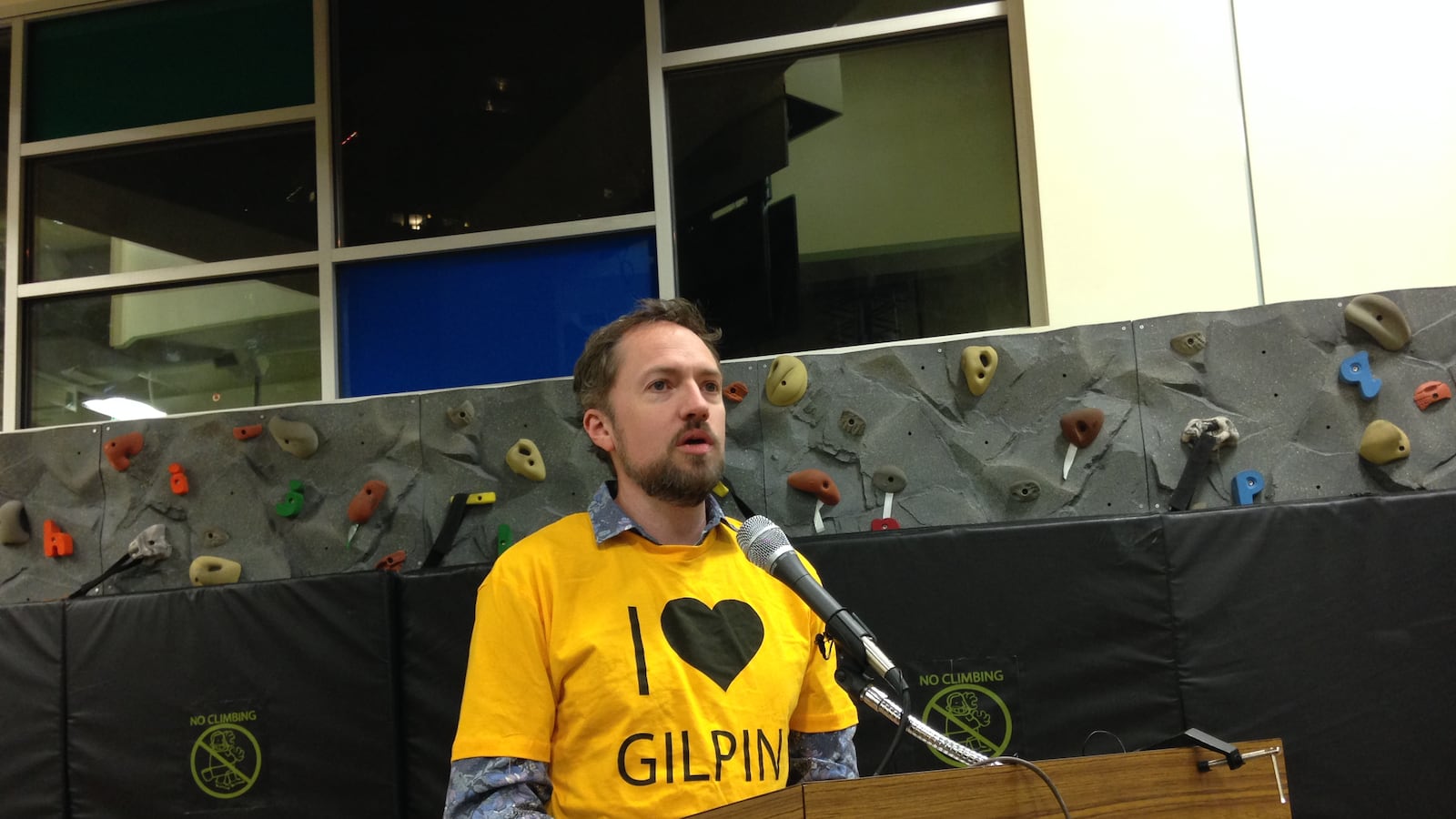The Denver school board voted unanimously Thursday night to close three persistently low-performing Denver elementary schools after hours of passionate public comment in which teachers, parents and students pleaded for more time for their schools.
Greenlee Elementary in west Denver and Amesse Elementary in far northeast Denver will be restarted in the fall of 2018, meaning the current schools will be closed and replaced with schools Denver Public Schools deems more likely to succeed.
Gilpin Montessori, an elementary school in northeast Denver, will be closed at the end of this year. The board approved a DPS staff recommendation that Gilpin not be replaced with another elementary school due to low enrollment projections.
Board members acknowledged the difficulty of the decisions — one member called them “gut-wrenching” — but said they felt an obligation to stand by the new policy, which was created in an attempt to make the school closure process more consistent and objective.
“A couple of people tonight spoke about integrity,” said board member Happy Haynes. “I believe with my vote here tonight, and with my colleagues who support this, we are doing what we said we would do when we created this policy.”
The policy, called the School Performance Compact, was adopted by the school board last year and put in place for the first time this fall. For a school to be closed or restarted, it must:
— Rank in the bottom 5 percent of all DPS schools based on multiple years of school ratings;
— Fail to show an adequate amount of growth on the most recent state tests;
— Score fewer than 25 out of 40 points on a school quality review.
Greenlee, Amesse and Gilpin met all of those criteria. As a result, district staff recommended all three for closure.
Still, groups of supporters from each school pleaded with the board Thursday for another chance.
Parents and educators from Gilpin Montessori described vast improvements in morale and student achievement this school year that has yet to be reflected in state tests and questioned the district’s low enrollment projections for a neighborhood experiencing booming growth.
“Instead of shutting our neighborhood school, honor students by putting them first,” said Katherine Murphy, president of Gilpin’s collaborative school committee. “ … Please do not stop us now. We are on our way up now and need more time.”
Gilpin supporters also cited a lack of viable Montessori options in the city. Several board members said they recognized the hardship of closing a school with such a unique model, and member Rachele Espiritu, who represents the part of the city where Gilpin is located, put forth a proposal to provide transportation next year for current Gilpin students who want to attend a different DPS Montessori school. The board unanimously approved her proposal.
Supporters of Greenlee and Amesse, which are slated for restart, told the board their schools had begun restarts of their own and asked for the opportunity to see them through.
Amesse has a new leader this year, new curricula, a new focus on school culture and an overwhelmingly new and diverse teaching staff, teachers and parents said. Data shows students are already making gains in reading, they said, and kids are developing a love for math.
“We need the chance to demonstrate we have the right team,” said third-grade teacher Germaine Padberg. Invoking the school’s motto, she added: “We teach our students to do the right thing every day. I now ask you to do the right thing: vote no to restart.”
Educators from Greenlee pointed to the school’s “Possibility Plan,” developed with community input under the leadership of principal Sheldon Reynolds, who started at Greenlee last year. Students are showing academic growth, they said, and more teachers are choosing to stay.
They asked the board to put Greenlee’s restart in Reynolds’ hands rather than choose another program run by leaders with no knowledge of the neighborhood.
“We are roses growing in concrete,” former Greenlee teacher Tania Hogan said, quoting rap artist Tupac Shakur. “We created our own innovative path and it is showing great promise. … What if you took the concrete away and gave us the soil to grow?”
Superintendent Tom Boasberg emphasized that educators from both schools are encouraged to submit restart plans and said the district will support their efforts.
“I hope you’ll stick with us and work through,” said board member Mike Johnson. He echoed others in saying that ultimately, the decision to close persistently low-performing schools is about providing all students with the best possible education.
“We don’t get do-overs with our kids,” he said.

